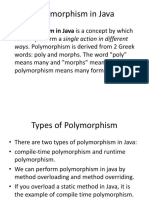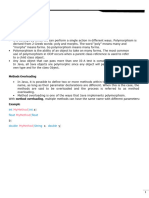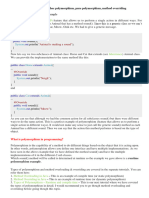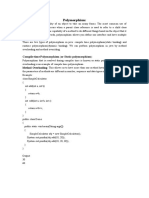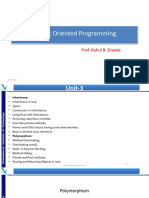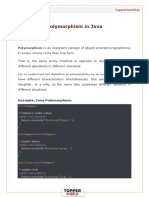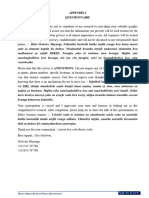0% found this document useful (0 votes)
5 views3 pagesUnit 09 Inheritance
The document discusses key Object-Oriented Programming concepts in Java, focusing on inheritance and polymorphism. Inheritance allows one class to inherit features from another, promoting reusability, while polymorphism enables a single action to be performed in multiple ways through method overloading and overriding. Additionally, the final keyword is explained as a restriction mechanism that can be applied to variables, methods, and classes.
Uploaded by
rinkubaria465Copyright
© © All Rights Reserved
We take content rights seriously. If you suspect this is your content, claim it here.
Available Formats
Download as PDF, TXT or read online on Scribd
0% found this document useful (0 votes)
5 views3 pagesUnit 09 Inheritance
The document discusses key Object-Oriented Programming concepts in Java, focusing on inheritance and polymorphism. Inheritance allows one class to inherit features from another, promoting reusability, while polymorphism enables a single action to be performed in multiple ways through method overloading and overriding. Additionally, the final keyword is explained as a restriction mechanism that can be applied to variables, methods, and classes.
Uploaded by
rinkubaria465Copyright
© © All Rights Reserved
We take content rights seriously. If you suspect this is your content, claim it here.
Available Formats
Download as PDF, TXT or read online on Scribd
/ 3
